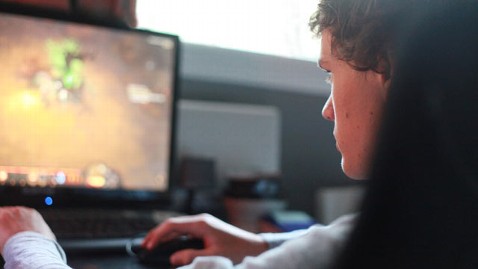Do Video Games Make Kids Violent?

(Image credit: Getty Images)
Adam Lanza gunned down twenty-seven people in Newtown, Conn. Dec. 14 and his access to high-powered firearms has put gun control front and center in the discourse around the tragedy. At the same time, it has started a debate about violent video games. Senator Joe Lieberman (I-Conn.) raised the issue while discussing his proposed "national commission on mass violence" on "Fox News Sunday" Dec. 16.
"The violence in the entertainment culture, particularly with the extraordinary realism to video games and movies now, does cause vulnerable young men, particularly, to be more violent," said the senator, who was joined by Sen. Dick Durbin (D-Ill.).
ABC News has not confirmed that Lanza played violent video games, but gaming has become part of the debate since the Connecticut shootings, and one group, GamerFitNation, has said it plans a national " cease-fire" Friday out of respect for those who died in Newtown.
The issue of the effect of video game violence on young people came into the national spotlight in 2011 when a California law banning the sale of some games to minors was brought before the U.S. Supreme Court. The 2005 law was never enforced due to legal challenges. California asked the court to treat violent and sexually explicit video games as apart from First Amendment protections, much like obscenity.
The Supreme Court deemed California's law unconstitutional in 2011. Writing for the court, Justice Antonin Scalia described the bill as "unprecedented and mistaken" and likened the violence in kids' games to that in commonly read children's fairy tales. Justice Scalia also wrote that a causal link between these games' content and harm to young people had not been proven and went on to place the responsibility to filter what children are exposed to with the parents.
"Parents who care about the matter can readily evaluate the games their children bring home," Scalia wrote. "Filling the remaining modest gap in concerned-parents' control can hardly be a compelling state interest."
Laura Davies, M.D., a child and adolescent psychiatrist in San Francisco is hesitant to support tighter controls on media of any kind. However, she believes too many children are exposed to too much violence through video games and that there can be consequences.
"A huge part of discipline and development is understanding consequences. Letting kids know that their actions have consequences," Dr. Davies told ABCnews.com. "Video games like Grand Theft Auto turn the consequences into positives. You kill a prostitute and get points, you're rewarded."
In contrast to Justice Scalia, Dr. Davies said there is a distinct difference between how a child is affected by reading about violence versus how he or she is affected by video game violence.
"They're not affected by reading a violent book the same way they are from a video game that is visually violent and that they actually participate in and that rewards them for violent acts," she said.
Though studies on the issue are abundant, none have been successful at directly correlating video game violence and real-world violence in children.
Chris Ferguson, department chair of psychology and communication at Texas A&M International University, has conducted several studies on violence and its effects on youth. Ferguson, who called himself a proponent of gun control, stressed the importance of mental health treatment access and of parents monitoring what their children are exposed to. However, Ferguson said he firmly believes violent video games do not lead to violence in the real world.
"If we are serious about reducing these types of violence in our society, video game violence or other media violence issues are clearly the wrong direction to focus on," Ferguson told ABC News. "Video game use is just not a common factor among mass homicide perpetrators. Some have been players, others have not been."
Dr. Davies said she disagrees. Though she concedes that studies cannot prove conclusively that violent games lead to violent acts in young people, she made a distinction between those children who are naturally better able to distinguish between fantasy and reality and those, perhaps like Adam Lanza, who may not see those distinctions so easily.
"There are no numbers. It is impossible to prove causality with these sorts of things," said Dr. Davies. "But certain personalities are unable to so easily differentiate between fantasy and the real world. They might not fully understand that the people they harm have real lives and real families. As kids grow, most distinguish fantasy from reality."
Though she differs in her beliefs on the cause of violent acts such as those carried out by young people like Lanza, Dr. Davies, like Justice Scalia and Chris Ferguson, agrees that parents and the schools have a responsibility to help catch problem behavior before it escalates to violence.
"There needs to be more mental health oversight. They say this kid had issues before and if you see a kid is living too much in the fantasy side, that needs to be addressed," she said. "I'm not sure there is a clear cut solution. But, and especially if you see a kid is living too much in the fantasy world, parents need to limit screen time and limit violent games."
ABC News' Dr. Sam Li contributed to this story.